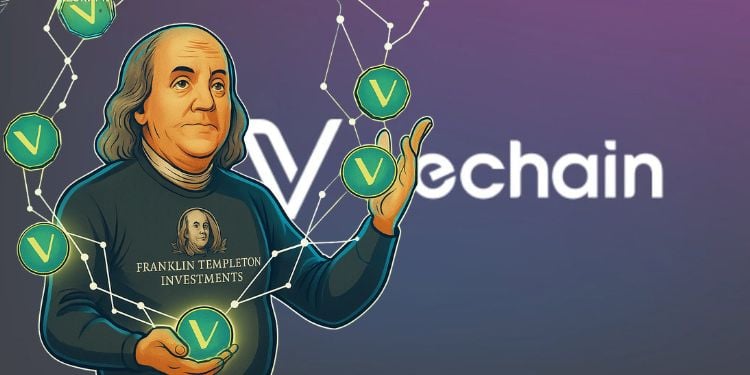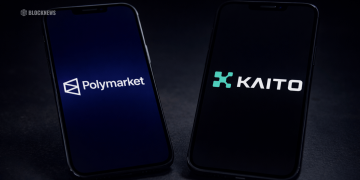- VeChain partnered with Franklin Templeton to enable on-chain treasury payments using tokenized U.S. government funds.
- The BENJI platform now runs on VeChain, allowing real-time settlements and reducing banking delays and risks.
- Backed by an $800M fund, the move boosts VeChain’s role in enterprise finance and cross-border payments.
Alright, here’s a big one. VeChain’s teaming up with financial giant Franklin Templeton to push business payments straight onto the blockchain. At the center of this move? The BENJI platform—Franklin Templeton’s own system for tokenized treasury stuff, which now works inside the VeChain ecosystem. Kinda wild, right?
What this means is businesses can settle transactions using tokenized U.S. Treasury funds—on-chain, in real time, without waiting on old-school bank delays. It’s faster, safer, and skips over all that middleman stuff. Plus, it makes VeChain a bigger player in the whole finance-meets-blockchain scene.
BENJI Goes Live on VeChain
So here’s how it works: BENJI lets companies move around digital dollars backed by U.S. government securities. Now that it’s running on VeChain, those transactions can happen instantly—on-chain—with clear audit trails and better security baked in. No more three-day wire transfers or crossed fingers.
And for businesses? This is a win. Treasury operations get faster, leaner, and way more secure. Settlements don’t drag. Counterparty risk? Cut down. And holding cash in a bank? Well, there’s now a blockchain-native option for that too. It’s not just a flex—it’s practical.
Payments That Move Like the Internet
What’s really happening here is B2B money movement is being rebuilt to work like the internet: fast, reliable, and programmable. That’s not just a nice headline—real-time settlements mean global deals don’t have to wait. Whether it’s vendors across borders or partners in different time zones, payments can fly with minimal friction.
Plus, BENJI doesn’t stand alone. It’s backed by Franklin Templeton’s $800M FOBXX fund, BitGo’s secure custody, and market-making by Keyrock. All that adds serious backbone to the whole setup, so companies don’t just get speed—they get reliability, too.
VeChain’s Institutional Game Plan in Motion
This move? It’s all part of VeChain’s long-term play to attract institutional finance. By making its blockchain compatible with real financial tools—and working with firms like Franklin Templeton—it’s proving it’s not just another smart contract chain. It wants to be the infrastructure for enterprise finance.
The BENJI integration shows VeChain isn’t messing around. From faster payments to reduced risk, this isn’t theoretical stuff—it’s real-world finance starting to shift on-chain. And with big names behind it, VeChain’s positioning itself as a serious backbone for how value moves in the futur














